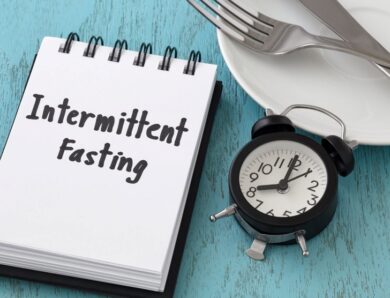
Skipping Meals Will Help With Weight Loss: True or False?
You might think missing meals helps you drop pounds. This idea gets a lot of buzz, but the truth isn’t so simple. Recent studies shine some light here. Researchers found skipping meals doesn’t mean fewer calories overall. You eat just as much later on, maybe more! Plus, this habit could harm your health over time.
Lincoln Weight Loss focuses on healthy habits for losing weight safely and effectively. It is guided by such findings, and there are no meal-skipping tricks that don’t work in the long run or risk your well-being.
Misconceptions About Meal Skipping
Skipping meals might seem like a quick way to lose weight, but it’s not that simple. Recent research shows skipping meals and then eating a lot later can harm your body. It leads to bad levels of blood sugar and slow insulin response. These issues could turn into diabetes over time. However, another study found that if you eat less on alternate days as part of a plan, it can be good for you. People doing this lost 8% of their body weight and saw health improvements like better cholesterol levels.
So, the key is how you skip those meals randomly. Missing them might backfire on your goals. A place like Weight Loss Center Lincoln understands these details well and helps with plans that work without harming your health.
Impact on Metabolism
Skipping meals might seem like a quick fix to lose weight, but it affects your metabolism more than you know. When you ignore eating for over five hours during the day, it’s not just hunger that hits hard; your body reacts in ways that can undo your efforts. For instance, once you drop pounds and hit 140, keeping off those pounds demands less food compared to someone who’s always been at that size. This shows how key metabolism is in managing weight.
Lastly, while busy lives make meal times easy to skip or opt for fast options, planning ahead ensures healthier choices are within reach without locking much time away, proving beneficial both health-wise and in managing one’s day better.
Healthy Alternatives to Losing Weight
Skipping meals might seem like a quick fix for weight loss, but it’s not the best path. The key lies in understanding calorie deficit. This means eating less over time leads to weight loss.
For instance, intermittent fasting shortens your eating times and can make you eat less naturally because you feel full sooner. Yet, some might eat more than needed when they do eat due to being very hungry from skipping meals. A study shows both those who cut calories daily and those who fast intermittently lose similar weight across a year.
It’s about finding what fits you best; there’s no one-size-fits-all solution here. Instead of worrying about meal timing or counting every hour until the next snack, consider larger but fewer meals within your day, which could simplify dieting by reducing overall caloric intake without feeling deprived or constantly thinking about food.
Skipping meals sounds like a quick fix for weight loss, but it’s not the best move. It can lead to big hunger later, making you eat more or choose junk food. Your body needs regular fuel from good foods to keep your energy up and burn fat right.
At Lincoln Weight Loss, they teach smart eating habits that support your goals without missing meals. Trust them; balanced eating wins over skipping any day for lasting health and a slim figure.




